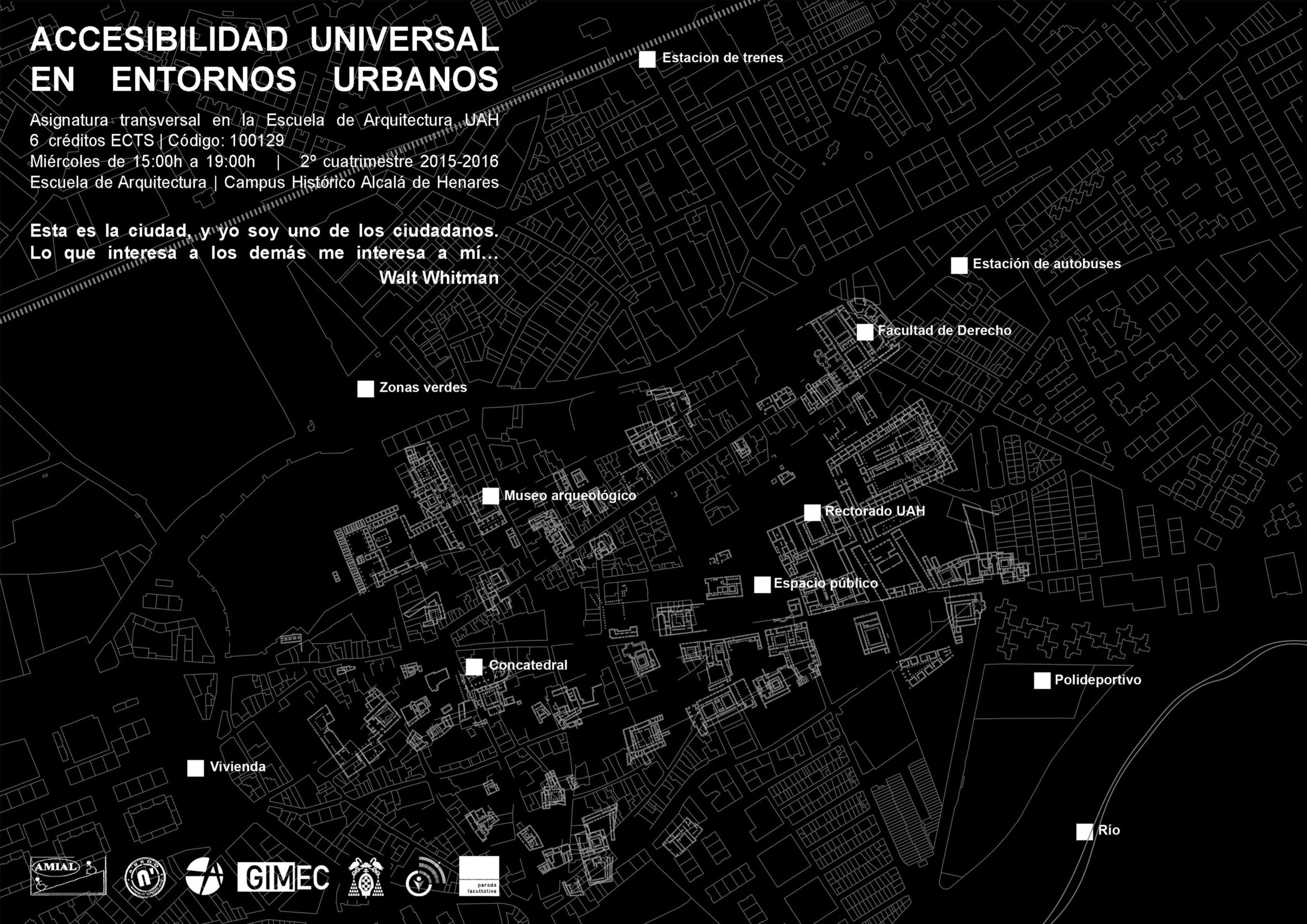Universal Accessibility in Urban Environments
Location: Alcalá de Henares University, Madrid, Spain
Year: 2014-2015-2016
Customer: Escuela de Arquitectura de Alcalá de Henares (UAH)
#Accessibility #University
n’UNDO participates in the transversal subject at the School of Architecture of Alcalá: Accessibility.
The subject is approached from various groups and individuals both inside and outside the university as a response to the absence of a sufficiently developed culture and sensitivity to accessibility in the environment of architecture and urban planning.
Video summary of the course made by the University of Alcalá de Henares.
PRESENTATION
The course is intended to be, on the one hand, a tool for specialization with respect to the existing theoretical and regulatory framework, and on the other hand, a workshop from which the most immediate problems of the city can be answered. Within the theoretical framework, topics such as: ergonomics, occupational accessibility, accessibility in the health environment, accessibility and innovative technologies (products), design of buildings and adapted housing, urban design for all, accessible transport, accessibility in the historical heritage will be addressed. On the other hand, the existing regulatory framework at both state and local level and its interpretation will be analysed. The practical work will consist of the analysis of the accessibility in real environments and the approach and design of the necessary corrective measures. For example, the study and mapping of the city of Alcalá and the different problems that arise both in the centre and the outskirts will be addressed, leading to a local accessibility plan. The work will have a professional character and will contemplate all the aspects that allow the viability of the same one, collaborating whenever it is possible with the local actors to guarantee the implementation of the raised measures. On the other hand, associations such as Amial, n’UNDO and Arquitectos Sin Fronteras will be involved in the different aspects of the subject.
SUMMARY
Seeking to eliminate the various types of personal and collective inequalities that exist in our society is one of the basic strategies for achieving a more just and sustainable world.
Much remains to be done, both in the field of awareness of the problem, in policy development and, above all, in its actual elimination.
A paradigm of this situation is the different types of barriers that prevent universal accessibility in urban environments. This, in practice, results in spatial discrimination against a significant number of people who do not have universal access to urban space and the buildings in which they are located.
OBJECTIVES
This transversal subject has been proposed as a form of:
ACCESSIBILITY: GENERAL FRAMEWORK | URBAN ACCESSIBILITY | BUILDING ACCESSIBILITY | CASE STUDY
– To increase the little or no culture and sensibility existing in the university community and (the citizenry) to what the discrimination of accessibility in the environment of architecture and urbanism means.
– To set up an introductory tool to the specialization in universal accessibility with respect to the existing theoretical and normative framework.
– To develop a workshop from which a response can be given to specific accessibility problems in the university and/or the city of Alcalá de Henares
Links to the final papers of the 2014/2015 and 2015/2016 courses and the media coverage in the 2015/2016 course.


